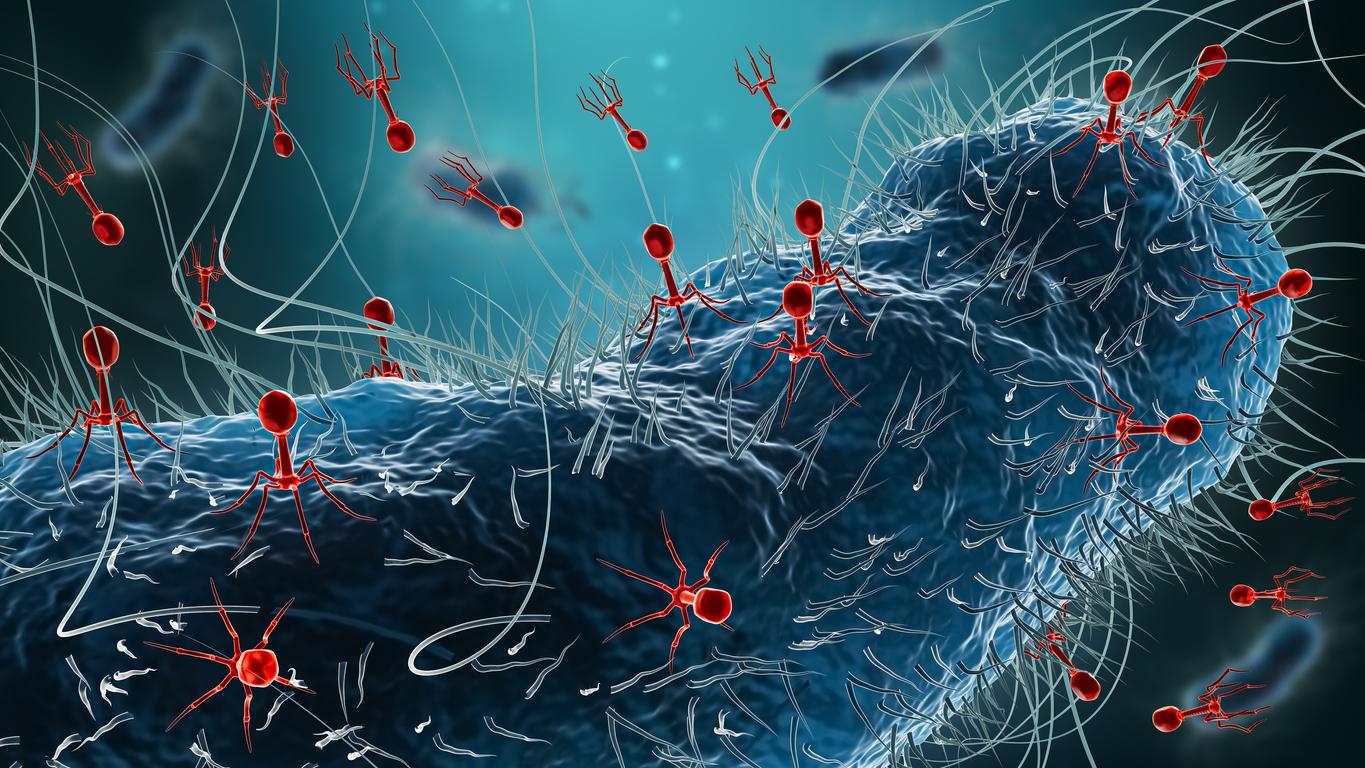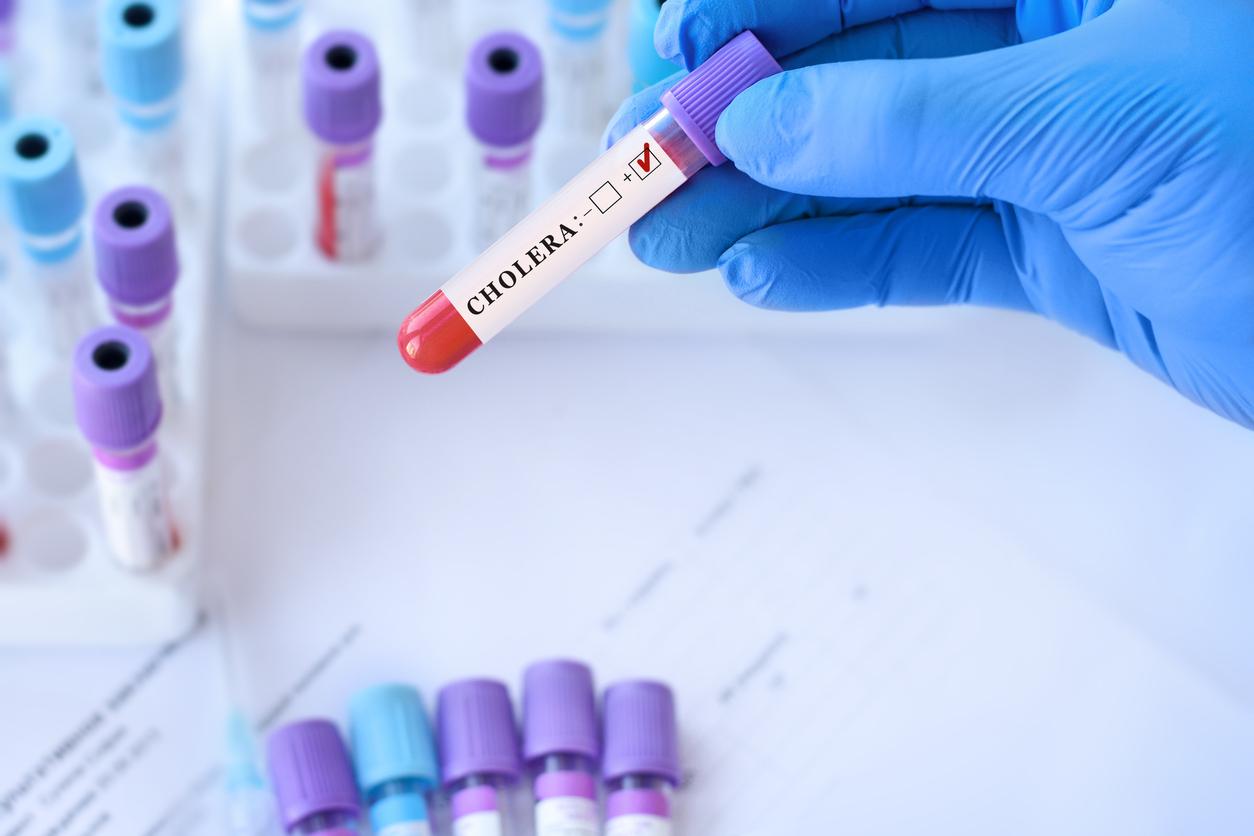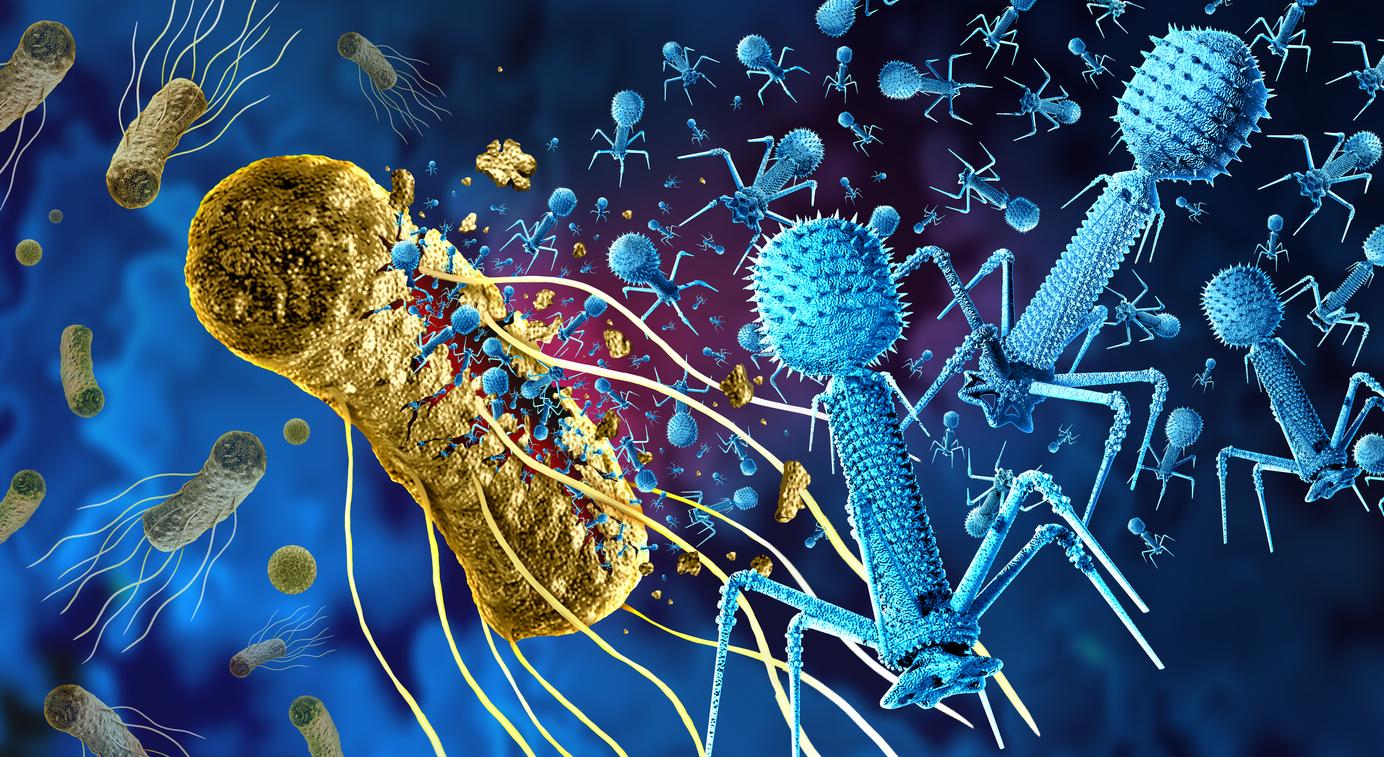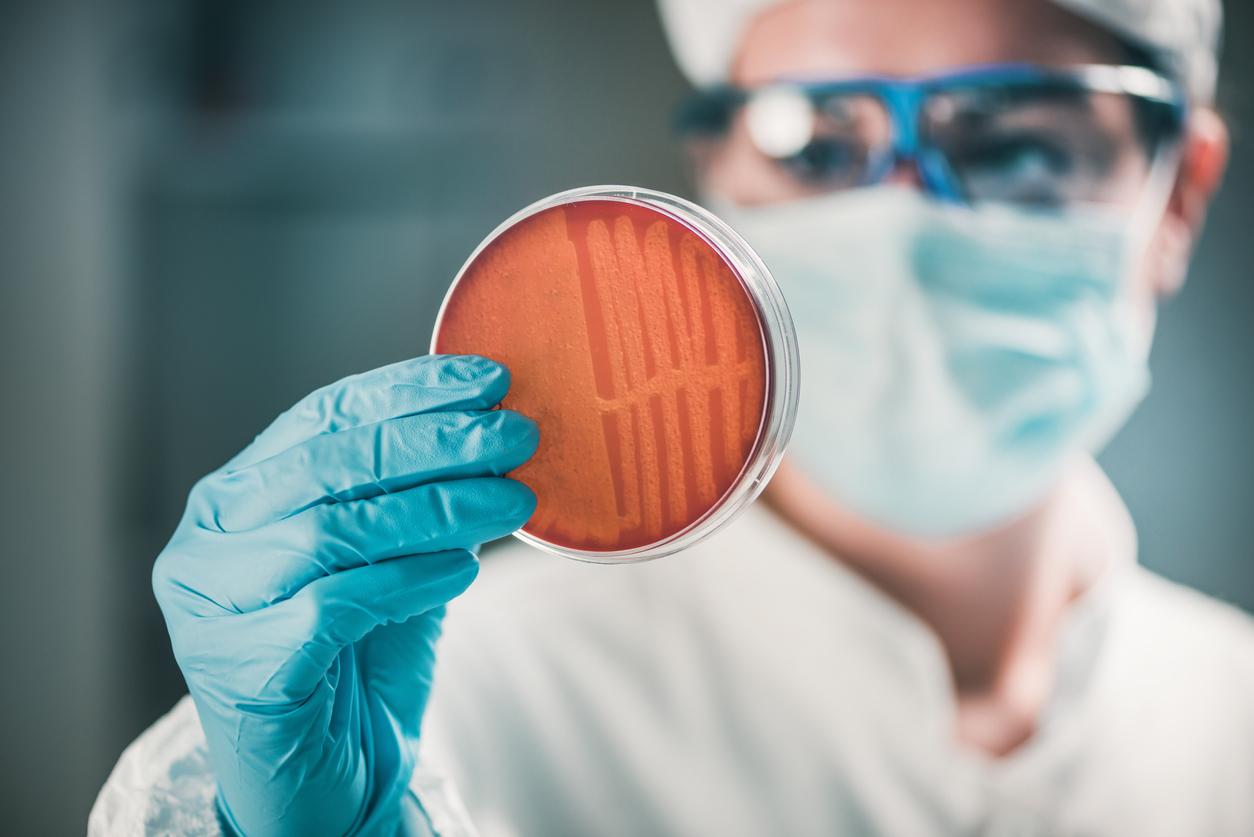A 41-year-old patient with a recurrent antibiotic-resistant lung infection was cured with phage therapy, a treatment using viruses that prey on bacteria.

- A Swiss patient with Kartagener’s syndrome developed antibiotic-resistant pneumonia.
- Faced with the lack of results, his doctors offered him to test phage therapy, a treatment which consists of inoculating a phage, a virus known to destroy bacteria.
- The phage treatment was a real success. The patient was saved.
Antibiotic resistance is an important public health problem. And the solution could come from bacteria-eating viruses, harmless to humans, called phages (or bacteriophages). Swiss doctors came up with the idea of using them to treat a patient with a recurrent antibiotic-resistant lung infection. This practice, known as phage therapy, is not really new. Although it had been neglected by most Western doctors in the 1960s, it is still used in Eastern European countries, and could be a response to antibiotic resistance.
Phages: last chance treatment
Jose-Maria Vidal has the syndrome of Kartagener. This genetic disease that affects the airways and prevents the expulsion of mucus by the hair cells, promotes the development of irecurrent lung infections. THE superinfections became more numerous in the patient when a mountain bike accident made him quadriplegic at 36 years old. This is how pneumonia led him to be hospitalized between December 2019 and May 2020 at the Geneva University Hospitals.
Despite continuous intravenous antibiotic treatment, no improvement was observed. Faced with this desperate situation, the doctors suggested that the 40-year-old try phage therapy.
“When we tried to stop the antibiotic therapy, my fever peaked at 40 which did not go down, my lungs became engorged with mucus which I could not expectorate, I was suffocated. We tested this protocol (antibiotics, given intravenously continuously, 24 hours a day, 7 days a weekEd) for a month or two, but nothing worked… I no longer had the strength to fight. That’s when I was offered to try a phage treatment.”recalled the now 45-year-old patient, in the pages of the Swiss newspaper The weather.
Infection antiresistant : the search for the most suitable phage
For phage therapy to be effective, it is essential to determine which phage has the capacity to destroy the bacterium responsible for the recurrent infection. In the case of Jose-Maria Vidal, the bacteria responsible was Pseudomonas aeruginosa. Doctors therefore set out to search for the most suitable bacteriophage in the phage banks of scientific laboratories around the world. Eventually he was identified and found at the University of Yale in the USA.
“Ihe American team made this phage available to us for free and we were therefore able to start the treatment by administering it by aerosol, while continuing the antibiotics. To be honest, I was not totally reassured at first, but after three days the patient was already breathing much better, after four he was no longer producing mucus. The result was impressive, and apart from a small fever on the first day, no other side effects were reported and we were quickly able to reduce the intravenous antibiotics to every other day”, explained Professor Christian Van DeldenAssociate Associate Physician in the Infectious Diseases Department of HUG and author of the research at the newspaper Le Temps.
A second cycle of phage treatment was carried out a year and a half later when the infection returned. It allowed the patient to continue taking antibiotics only in the form of aerosols at home.
Phagotherapy : a long journey before the green light from regulatory agencies
Although the results of this case study published in the journal Nature Communications show promise, phage therapy still has many steps to take before it becomes a routine treatment in Western hospitals. The European and American regulatory agencies are indeed slow to grant the necessary authorizations for the use of this method. The reason ? To be effective, this type of treatment must be individualized for each patient, which complicates the implementation of randomized trials.
“We hope that our publication reassures health agencies about the efficacy and safety of phage therapy, thus facilitating the development of this strategy on a larger scale”entrusted the Pr Christian Van Delden to the Swiss journal.

















